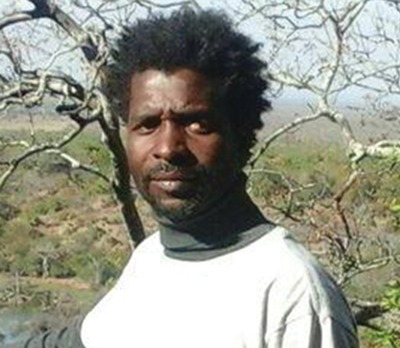
PEOPLE love heroes, the larger than life characters who define a certain glorious epoch in a nation’s history. Heroes give life to certain narratives that bind a people and more often than not heroes are an enigma or shrouded in a certain aura. If heroes are not there, they are created.
Britain has its war hero — Winston Churchill — who is lionised. A perfect narrative of how a single military commander saved the Island from Germany invasion during the Second World War. Churchill, the war hero, is remembered and commemorated across the Commonwealth — a union of former British colonies.
Zimbabwe is no exception to other Commonwealth members in this act of remembering Churchill.
In Harare, there is Churchill Boys High, a school that is famed for its sporting excellence and their sport teams have the moniker — Bulldogs. In Mount Pleasant, Zimbabwe’s first university college — University of Zimbabwe — is bounded by Churchill Avenue to the south.
Professor Yuval Harari, in his book Homo Sapiens: A Brief History of Mankind, speaks about one human character that separates it from other animals — the creation and belief in myths. Among other myths, he writes extensively on are religion and money.
This could be controversial to many in Zimbabwe — a country home to several prosperity preaching self-anointed apostles and prophets.
Zanu PF, as a political party, has learnt and understands the power of myths. To that end, since its creation in 1963 in Highfield suburb of Harare, the party has conjured and woven certain liberation war narratives that have lionised certain leaders and in some circumstances, created myths to advance its political hegemony.
Zanu PF created the myth of war hero Chenjerai Hunzvi. The man was a fiery orator. He emerged from the periphery of party politics in the late 1990s to become a central figure in national politics. Hunzvi, a Poland-trained medical doctor, was the militant leader of war veterans who forced the late former President Robert Mugabe to pay each war veteran a $50 000 gratuity and $2 000 monthly pension in 1997.
- Chamisa under fire over US$120K donation
- Mavhunga puts DeMbare into Chibuku quarterfinals
- Pension funds bet on Cabora Bassa oilfields
- Councils defy govt fire tender directive
Keep Reading
Hunzvi joined the liberation struggle at its tail-end around 1978. He went outside for military training, but was identified to further his education and enrolled to study medicine in Poland. He came back to Zimbabwe in the mid-1980s after completing his degree. He became a doctor and government employee. Hunzvi was among the first persons to know of the War Victims Compensation Fund.
The fund was crafted and enacted without much publicity. It was known only to a few top Zanu PF officials. A war veteran simply had to go to a medical doctor and have his/her war injuries assessed.
The degree of disability was then compensated in monetary terms. Many of the then Cabinet ministers, including John Nkomo (now late) and Joice Mujuru, and other senior civil servants like then Police Commissioner-General Augustine Chihuri were declared to have more than 90% disability and were paid hundreds of thousands of dollars.
Hunzvi was one of the doctors who did the medical assessments, so he became aware that the government had lots of resources. Using inside information, he together with others formed the Zimbabwe National Liberation War Veterans Association to demand compensation for the ordinary veteran. He became a power broker in Zanu PF and by the time he died in 2003, he was declared a national hero.
A new trend had started in Zanu PF, one could become a hero if he was a power broker. Border Gezi, a short-lived Zanu PF political commissar, who initiated the setting up of a para-military militia for the party — Green Bombers — who pummelled the opposition into submission in the 2000 parliamentary and 2002 presidential polls, was declared a national hero. Actually, he was the first war collaborator to get such a recognition.
Zanu PF has systemically culled other nationalists from outside its party from being declared national heroes. People like Zapu’s Dumiso Dabengwa, Lookout Masuku and Thenjiwe Lesabe are being written out of historical narratives so to speak, literally. It is surprising that the late Foreign Affairs minister Sibusiso Moyo, the November 2017 coup announcer, is a national hero, but some of his Zapu leaders are not.
It is not only Zapu cadres who have been removed from the national history narrative, but also some from Zanu PF who crossed the paths of party leaders. Prominent Dare ReChimurenga (Zanla war council) members have been written out of party history. Mukudzei Mudzi, the founding Dare secretary for administration, only received a State-assisted funeral benefit. Zanu PF politburo members — all who are unfit to untie his shoes — decided his fate that he did not even qualify to be a liberation war hero.
Zanu PF has gotten away with this fake history narrative because it controls the manufacture of hegemony.
It controls State media, therefore, has unlimited inch-columns and broadcast minutes to churn its propaganda.
The private media and academics have been complicit in this bastardisation of Zimbabwe’s history. No one has dared interview Rugare Gumbo, the only surviving member of original Dare ReChimurenga.
No one has dared review Wilfred Mhanda (Dzinashe Machingura) memoirs and publish them in national media. Local academics have not bothered to research and write about the liberation struggle. All we get is State media narrative. A narrative that this week was called out for rewriting history in its eulogy for Sibusiso Moyo.
We are now in a dangerous age — the post truth as represented by United Kingdom’s Boris Johnson and former United States President Donald Trump. The age of “social media echo chamber”, the age of Twitter 140-character consciousness.
It’s time to tame the tide for the love of Zimbabwe. The Zanu PF myths have to be debunked and created new nationally shared myths.











